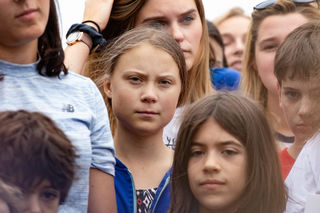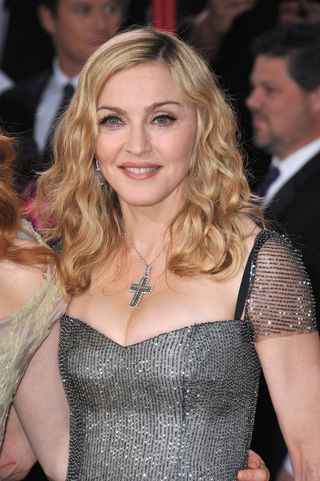Environment
What Everybody Gets Wrong About the Environment
Part Two: And how to get it right.
Posted November 11, 2019 Reviewed by Lybi Ma
My TEDx talk, "What Everybody Gets Wrong About the Environment," went live the day my Psychology Today column did with the same title. Here's the video, but I recommend reading the script for two reasons: It allows more reflection, and I left some parts out. (Here's part 1)
A few things have happened since I wrote this talk.
The Amazon suffered record burning. We grieve the rainforest loss, yet we heat the globe more by flying, despite us having more options. We can replant trees, but we can't put jet fuel back underground.
Hurricane Dorian broke yet more records. The Barbados Prime Minister said, “We are on the front line of the consequences of climate change, but we don’t cause it.”
Actually, I looked it up. Barbados emits double the world average per capita, not counting tourists flying there, which they promote. She could have said, “Since we contributed so much, we will lead in reducing our contribution.” She could have led.
We continue to lack role models. All the U.S. presidential candidates continue flying at whim, as do Al Gore, DiCaprio, and every other renowned person.

Then came Greta, who also doesn't fly.
In sailing to a UN conference, she made headlines and leapfrogged them all. She coalesced community, leading me to find sites like Noflyclimatesci.org, where hundreds of climate scientists pledged not to fly, some long before me.
I stopped feeling alone. I spoke to some. We talked about fun and growing and learning. Things like that.
The past few weeks surprised me more than the months before. People are calling and emailing that they're reducing their flights, sending articles about people choosing not to fly. I can no longer say no one is doing it.
Remember my window garden? The cherry tomato leaves started drying up and falling off. Spider mites infested them.
Outdoors, other bugs eat mites, but here they grew unchecked, like humans on Earth. I thought they would kill the plants, which would kill them. Actually, the plants haven't died. They shriveled into sad, pathetic remnants, supporting a fraction of the mites they could have if the mites could just say, “I could consume more, but I won't. I could have more children, but I won't.”
I wonder, “Can we outdo bugs?” Maybe not. Maybe our intellect, empathy, innovation, and culture can't overcome our bug-level drives. Maybe we should consume as much as we want and have as many kids as we want, and make do on a shriveled, sad remnant of a biosphere.
I don't think so. I think we can outdo bugs, which means, “I could consume more, but I won't. I could fly more, but I won't. I could have more kids, but I won't, because my behavior affects others.” What I call community.
Communities change when people lead them. Before avoiding packaging and flying, I thought leadership meant loneliness, and environmental action meant deprivation and sacrifice.
But I found joy in acting on my values—joy that could change everything.
I hear a lot of facts, figures, doom, and gloom, but I knew of nobody well-known sharing joy.
As far as I know, none even tried to live sustainably. If they did, they'd feel that joy too. Without that joy, they make the choice: something possible later that you don't want, but we might fix, or something you definitely don't want now.
They're leading people to choose later. I found that stewardship means joy now, not a burden.
So I acted to share my discovery. On my podcast, for example, I lead well-known people to share their environmental values, act on them, and share their results. My goal isn't just individual change, but community change. That's why I invite those renowned people.

My goals are Oprah, Serena, LeBron, Madonna, and their peers. They're in more people's communities, so listeners can say, “It's not just me. People in my community are already doing this. They're enjoying it. It's time for me to act.”
One chose to recycle more. Realizing he could have done so years before, he said: “Josh, you make me feel horrible.” Then he continued, “No, I felt horrible all along. You showed me I could act. You made me feel empowered. I wish I'd started earlier.”
And that's what every prominent voice I've heard gets wrong about the environment. They act like it's a burden. A chore. Deprivation. Sacrifice.
I did. That's why I took so long to act.
I learned that acting—not talking, not reading, not writing, not analyzing, not debating—only acting on my values brought that joy.
I ask a lot of people, “What would happen if you didn't fly for a year?” Many won't answer. Some refuse to try to imagine. Others say they have to for their job, family, or whatever. But that's not what I asked.
What would happen if you didn't fly for a year?
You would learn to live sustainably or a lot closer to it. You wouldn't die or suffer. You'd face the challenges keeping you polluting. And you'd have it easy compared to the possibly billion climate refugees who will lose their homes and more.
You would learn to live sustainably. The first few months will be hard. Then joy and community.
We are more than bugs. Perhaps the most human act today is to consume less, avoid flying, avoid plastic, have fewer children, and to steward this still beautiful world and the life it supports.
When I talk about Al Gore flying and telling people not to fly, people think I'm calling him a hypocrite. I'm not. He's missing out, like eating so much ice cream he thinks it tastes better than apples. Candy gives a rush, but when your taste buds recover, which may take months, we prefer fruits and vegetables. Flying gives that rush.
The pattern is everywhere: We choose the rush, feel craving when it passes, consume more, and live in our garbage—packaging, jet fuel, dispersed communities, not spending time with our mothers, fathers, spouses, families, friends, farmers, and wildlife.
I'm not calling anyone a hypocrite. I'm trying to wake them up.
People ask, “But Josh, what do I do specifically?”
I ask you, “What do you care about specifically? Clean air? Clean water? Dirty air? Dirty water? Beaches? Disappearing wilderness?” Pick the care that resonates and act, and you will find joy. We'll all do everything eventually, so start with any. But start.
Your mind will tell you you can't. You can. It will get hard. You'll keep going.
Soon you'll find you haven't filled your garbage in six months, or whatever you do. Because you care, you'll want to do more, learn more, and share more.
The joy will follow, and others will follow you. The world will. Stewardship will become as normal as not smoking. It's already happening.
Find your care.
Act.
Get your joy.




